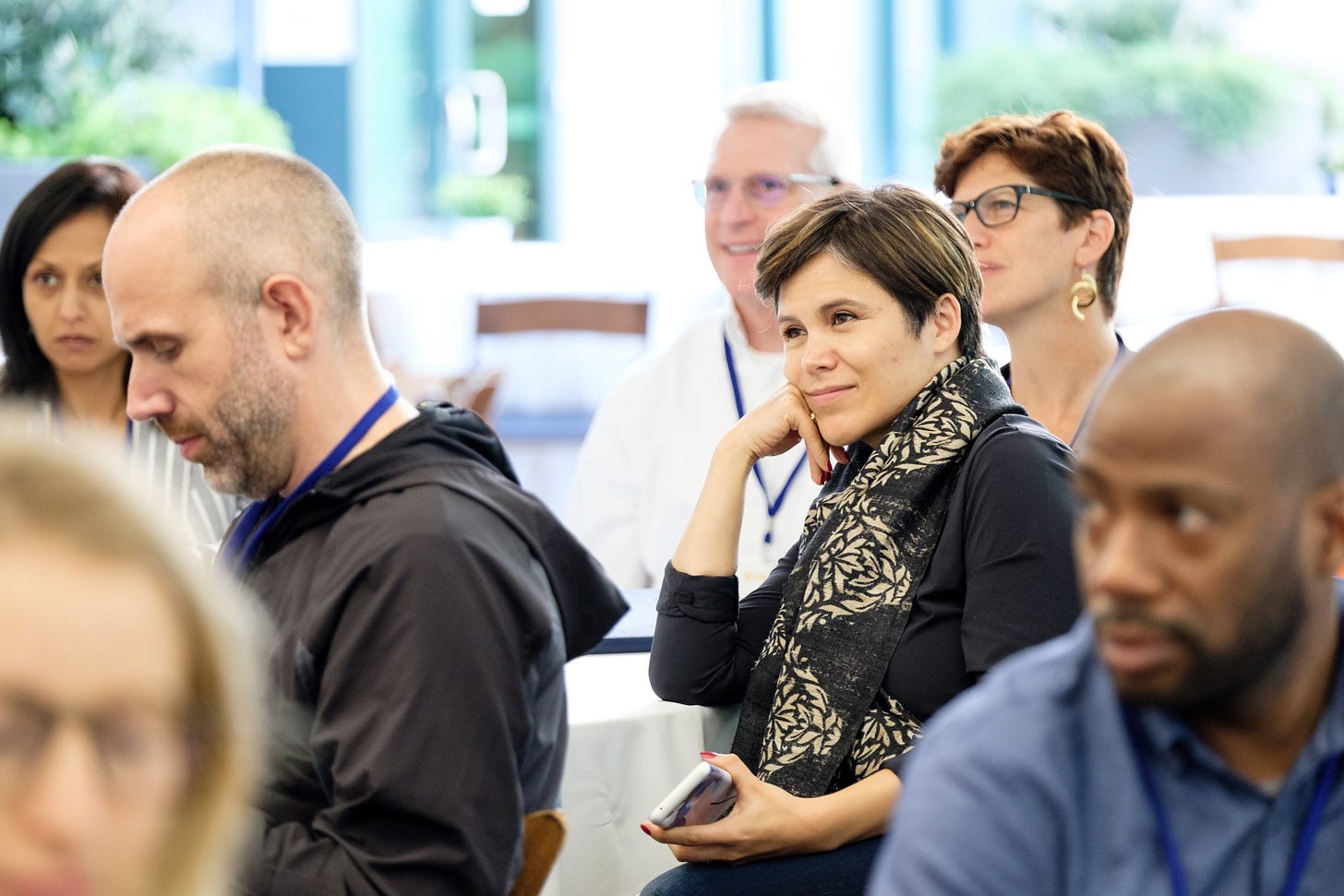Dear Gib: In your experience, what differentiates good product managers from exceptional PMs?
Answer: Required PM skills differ, depending on category, stage & role. I've outlined characteristics that are common to the role and the stages PMs grow through to become exceptional.
Dear Anonymous:
Product managers across companies do very different jobs, so the required skills vary. Google requires strong technical skills, while Netflix occasionally recruits non-technical leaders from consumer research. There’s a big difference between consumer and B2B product managers, and the skills required at different stages of a company’s growth vary, too.
Below, I do my best to highlight the common factors that differentiate an exceptional product manager irrespective of the company, stage, and role.
A simple hiring model.
Here’s a rubric for evaluating candidates for a product manager role:
Can they do the job? This speaks to the skills required for a specific role. Hiring a PM who has done a similar job in the past increases the odds of success.
Will they do the job? This speaks to motivation. The downside of hiring a PM who was in a similar job in the past is that they may not have the “fire in the belly” to do it again.
Are they a culture fit? Will the candidate live the company's values, demonstrating the specific skills and behaviors desired of all employees at that company?
A characteristic common to every successful PM: Grit
Grit provides a sort of virtuous cycle:
The candidate is passionate about the role.
Passion builds both intellectual curiosity and resilience.
Curiosity fuels learning.
Resilience builds determination to solve problems and to overcome challenges.
The result of grit? The candidate is both a self-starter and self-learner, which makes the hiring manager’s job easier. Grit also accelerates career development as individuals navigate the career ladder fairly independently, based on their ability to self-manage and learn the required skills on their own.
A PM hierarchy: From Good to Exceptional.
In thinking about the skills that PMs develop over time, here’s my best guess at a continuum from good to exceptional:
1) Good
The PM is a highly effective product builder. He/she makes it easy for teams to build products by working effectively with engineers, designers, data scientists, product marketers, etc. The PM has strong communication skills and is very data-driven, whether the sources are qualitative, quantitative, or both.
2) Very good
The PM is a consumer scientist. The job requires a mix of art and science. Can the PM frame a hypothesis and test it? Can they consistently guess the outcome? Do they have a great judgment about the product, people, and the business?
3) Great
They are successful organization builders. They recruit, manage, and develop talent themselves. They grow from delivering their own product to building an organization with highly successful PMs that they nurture. They think “company first” and build cross-functional alignment.
4) Exceptional
They are highly effective product leaders. They are brave, with highly creative ideas contributing to a better product, organization, and company results. They’re willing to take on smart risks, think strategically, and craft an inspired vision of the future. They do this in a way that is consistent with the values of the company. These product leaders make everyone around them better.
For me, about 30% of PM candidates washout in the first year-- they fail to achieve that first “good” level. Think about this progression as a funnel, and assume that 30% of the PMs advance to the next level. The result: if you hire 100 product leaders, two product managers will eventually become exceptional product leaders.
Recruiting, hiring, and developing PM talent is hard.
Here are the issues that challenge me:
If an organization has idiosyncrasies that take time to understand, how long should you wait for the PM to develop the skills? I usually wait a year, but most criticize me for being too patient. But I have had some PMs who seem like “washouts” in their first year who develop into exceptional product leaders.
You don’t want assholes, but you do want brave, confident leaders. Sometimes it’s hard to tease out the difference, which usually revolves around the PM’s ability to put the company first and disagree without being disagreeable.
To what extent is the PM generating their own ideas v. executing others’ ideas? Highly skilled managers and leaders invest their ideas in others, while opportunistic leaders steal ideas. Sometimes it’s hard to tell the difference.
Personality fit. We tend to work better with folks who have a similar style and background. But organizations require diversity. Stay focused on results, not the work style or personality fit between you, the PM, and other team members.
I have outlined what works in general. If you’re hiring, make sure you describe the specific skills you seek. If you’re a candidate, take time to understand the extent to which your skills match the opportunity. (I outline a broader menu of product and leadership skills to choose from here.)
I hope this was helpful. Thank you for your question.
Best,
Gib
Gibson Biddle
PS. Click here to give feedback on this essay. (It only takes one minute.)
PPS. Ask and upvote questions by clicking here. This question had 30 upvotes:


